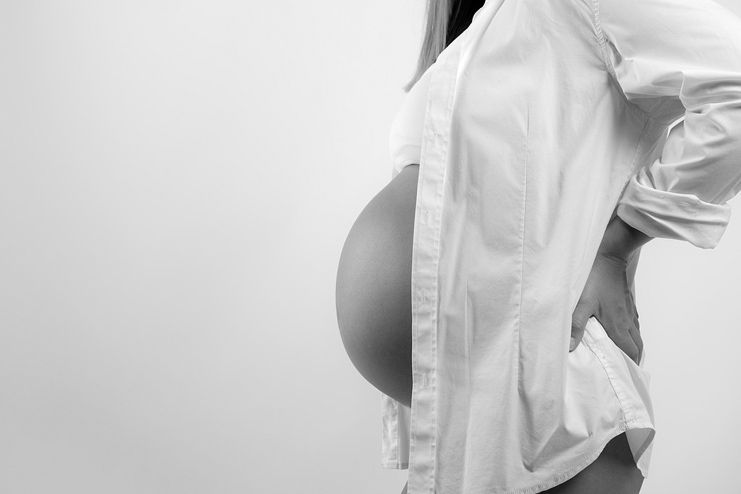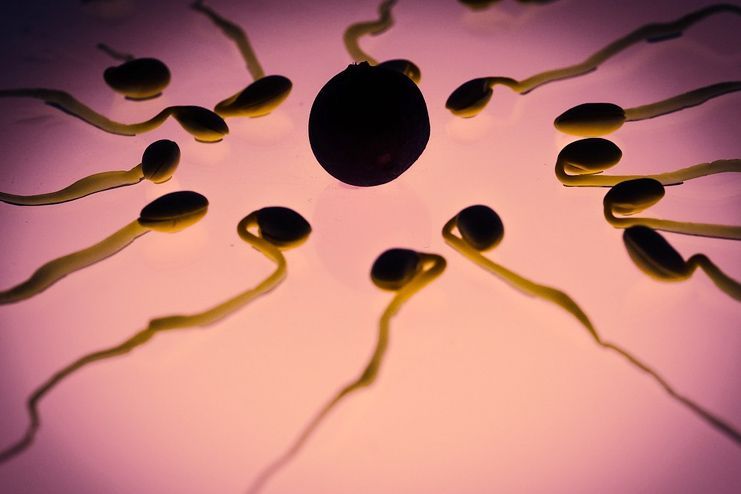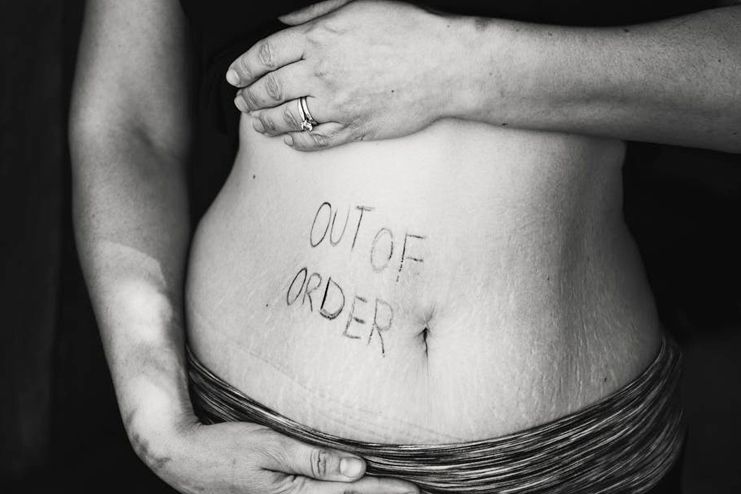Affiliate Disclaimer
Some links in this article are affiliate links. We may earn a small commission if you make a purchase through these links, at no extra cost to you. We only recommend products we find useful to our readersCramps or significant abdominal pain are common experiences for many girls and women. They often serve as a signal or warning of the upcoming menstrual cycle. In general, cramps and the discomfort accompanying them are never pleasant, are they?
This pain is primarily caused by prostaglandins, which trigger the contraction of uterine muscles to shed the unfertilized egg and uterine lining.
While this is normal, what happens if you experience cramps but no period follows? Does this sound like something you’ve encountered before?
What are Cramps?

When we mention cramps, the first thing that comes to mind is pain. Medically known as dysmenorrhea, menstrual cramps refer to dull, lingering discomfort or severe, intense pain experienced before or during menstruation.
For those who may not know, menstrual cramps occur after an egg is released from the ovary. The hormone prostaglandin contracts the uterine muscles, leading to pain in the abdominal region.
While cramps are a normal part of the menstrual cycle, experiencing stomach cramps without a period could be a cause for concern.
Why Do You Have Cramps But No Period?
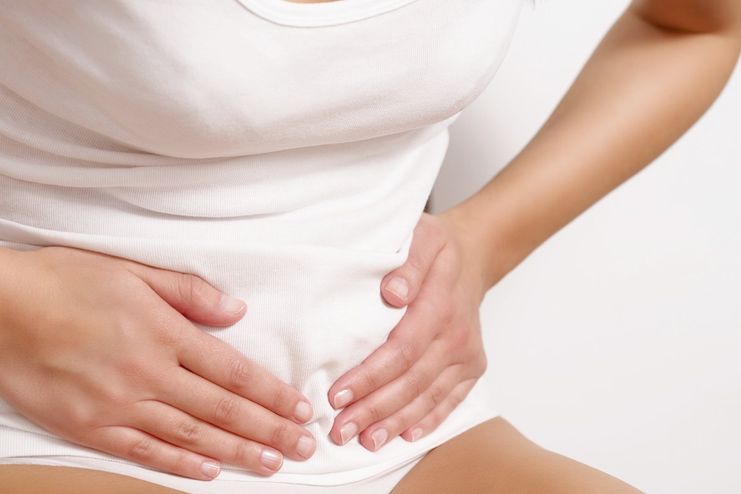
Cramping without a period can be a serious concern that requires attention and care. If you are experiencing severe cramps but there is no period, there is a possibility that an underlying health issue may be present without your knowledge.
What are the potential consequences? A range of possibilities, primarily affecting a woman’s reproductive health. There are several possible reasons for this condition, which we aim to highlight in this section.
1. Stress
Stress has become a common thing in our daily lives, but could it be linked to experiencing menstrual cramps without a period? While there is no definitive explanation, experts suggest that stress plays a significant role in delaying or disrupting your menstrual cycle (R). But how does this happen?
The hypothalamus, a small yet crucial structure, and the pituitary gland help regulate hormonal balance in the body. Any disruption in their functions can lead to delayed periods or symptoms such as cramping without menstruation.
The body’s stress hormone, cortisol, released from the adrenal cortex, plays a key role in regulating gonadotropin hormones in women.
In simple terms, higher cortisol levels lead to increased beta-endorphins, which suppress the release of gonadotropin-releasing hormone (GnRH). This suppression interferes with the proper release of hormones necessary for a smooth menstrual cycle.
You may still wonder why the body adapts to stress in this way. The most logical explanation is survival. The body instinctively prioritizes managing existing stress rather than adding additional strain, such as menstruation, when it is already under pressure.
Also, Read: How to Effectively Manage Stress During Major Life Transitions
2. Early Signs of Pregnancy
Cramps as an early sign of pregnancy (R) are a common occurrence. If you are experiencing period-like symptoms but no period and are sexually active, there is a possibility that you might be pregnant. This is why it is essential to be aware of the signs and consult a healthcare professional as soon as possible for confirmation.
As part of early pregnancy symptoms, cramps are normal. They are the body’s way of adjusting to the changes it will undergo in the coming months, preparing for childbirth after the nine-month gestational period.
Additionally, cramps and associated discomfort often occur when the embryo attaches itself to the lining of the uterus, which is typically not a cause for concern.
If you engage in sexual activity during pregnancy, you might experience mild cramping during orgasm.
While this may seem unusual, it is generally harmless unless advised otherwise by your doctor. Since cramps without a period can sometimes indicate pregnancy, it is best to take a test and seek medical confirmation.
3. Ovulation
Have you ever experienced intense pain in the middle of your menstrual cycle (R), particularly during ovulation? This condition is known as mittelschmerz, a German term meaning “middle pain.”
It is one of the most common causes of cramps without a period. The release of an egg from a follicle in the ovary can trigger cramping in some women.
Experts suggest that ovulation can cause a momentary twinge or twisting sensation in the abdomen. This occurs because the follicular sac ruptures to release the egg, leading to brief pain on one side of the abdomen, depending on which ovary has released the egg.
Wondering why ovulation can cause cramps? While the exact reasons aren’t entirely clear, one explanation is that the follicle stretches and expands before rupturing, putting pressure on the ovary. This pressure can lead to cramping and discomfort in some individuals.
4. Miscarriage

Miscarriage is one of the most heartbreaking experiences a woman can endure. Losing a child before even having the chance to meet them can be devastating for any expectant mother. That being said, miscarriage is one of the primary causes of cramping without a period.
If you are experiencing persistent, stabbing pain in your abdomen along with vaginal bleeding, it is crucial to seek immediate medical attention.
While mild cramping and short-lived abdominal discomfort without bleeding can be normal during pregnancy, the presence of blood changes the situation entirely.
Symptoms like abdominal pain combined with bleeding may indicate a miscarriage or an ectopic pregnancy. Miscarriages are most common during the first trimester, which is why it is essential to stay vigilant and never ignore warning signs.
Another possibility is an ectopic pregnancy, especially if the cramping does not subside over time. In an ectopic pregnancy, the fertilized egg implants outside the uterus, most commonly in a fallopian tube. This condition not only causes severe cramping and pain but can also be life-threatening if left untreated.
5. Endometriosis

Before we delve into how endometriosis contributes to cramping without a period, let’s first understand what the condition entails. Endometriosis is a disorder in which tissue similar to the uterine lining grows outside the uterus, primarily on the ovaries, fallopian tubes, bowel, or, in some cases, other internal organs.
While these tissue growths may not always cause noticeable discomfort, cramping intensifies during the menstrual cycle when hormonal changes occur. Common symptoms include persistent pain in the abdominal region or, in some cases, near the genitals. If the pain lasts more than two days, it is advisable to consult a doctor.
In addition to endometriosis, women may also experience cramping due to fibroids—non-cancerous growths of muscle and tissue in and around the uterus. Cramps and abnormal bleeding often accompany both conditions and should be addressed with medical intervention as soon as possible.
6. Ovarian Cancer
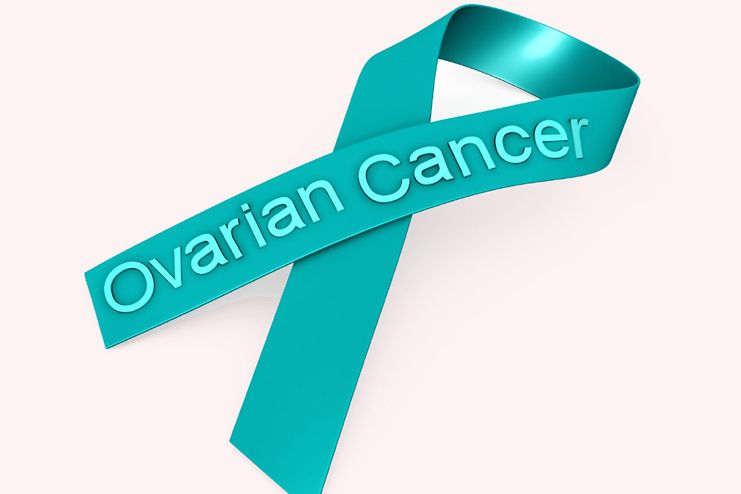
Ovarian cancer can cause severe cramping without a period. Common symptoms include abnormal vaginal bleeding, persistent abdominal pain, unexplained weight loss, fatigue, indigestion, and nausea, among others.
If left untreated, ovarian cancer can become life-threatening, making it crucial to pay attention to the warning signs. This type of cancer often disrupts hormonal balance, which can lead to stomach cramps even in the absence of a menstrual period. Early detection and medical intervention are key to improving outcomes.
Also, Read: 5 Life-Saving Facts about the BRCA Gene and Ovarian Cancer
7. Irritable bowel syndrome
Irritable Bowel Syndrome (IBS) is characterized by abdominal cramping, constipation, and irregular bowel movements.
While the myth that IBS can lead to cancer or other deadly diseases is completely false, the condition can still cause significant health concerns. This is why seeking professional help is essential if symptoms become severe or persistent.
One of the primary symptoms of IBS is cramping in the abdominal region. Many people may panic when experiencing cramps without a period, but it’s important to understand that IBS is manageable with proper medical treatment and lifestyle adjustments.
8. Menopause

It typically occurs in women in their late 40s and 50s, though it can happen earlier or later depending on individual physiology and hormonal balance. If you’re nearing the age of menopause and experiencing period pain but no period, it’s likely that you’ve reached this stage.
The cramps experienced during or near the onset of menopause are often more intense than those experienced during a regular menstrual cycle. This is primarily due to irregularities in hormonal balance.
Menopause occurs when a woman’s ovaries no longer have follicles to release eggs. Every woman is born with a finite number of follicles released each month for potential fertilization.
The absence of fertilization leads to the menstrual cycle, and the lack of these processes eventually leads to menopause.
Also, Read: 20 Natural Remedies For Menopause – Fight Away The Symptoms
9. Pelvic Inflammatory Disease (PID)
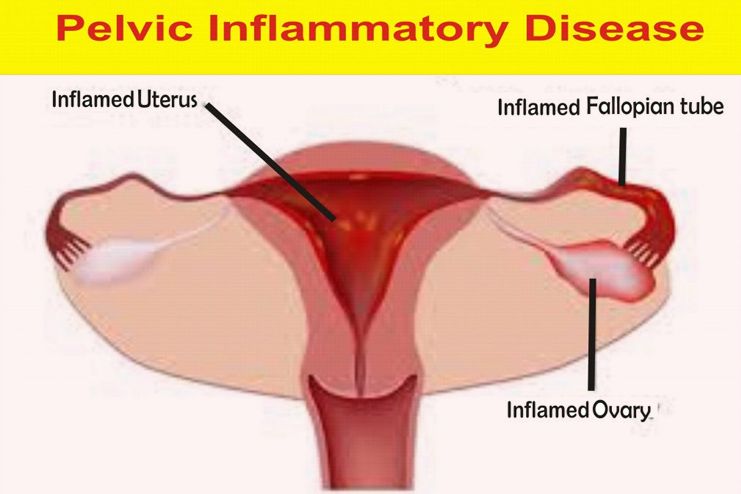
Pelvic inflammatory disease (PID) is a serious condition that can lead to infertility in women. It is an infection of the reproductive system, typically caused by sexually transmitted bacteria during sexual activity. The infection can spread to the primary reproductive organs, including the ovaries, uterus, and fallopian tubes.
PID is often difficult to detect externally because its symptoms are not always visible. If you are experiencing persistent abdominal cramps, irregularities in your menstrual cycle, and difficulty getting pregnant despite trying, it’s essential to consult a gynecologist.
The infection and inflamed organs may interfere with the body’s normal functioning, and timely medical intervention is crucial.
10. Pelvic Floor Disorder
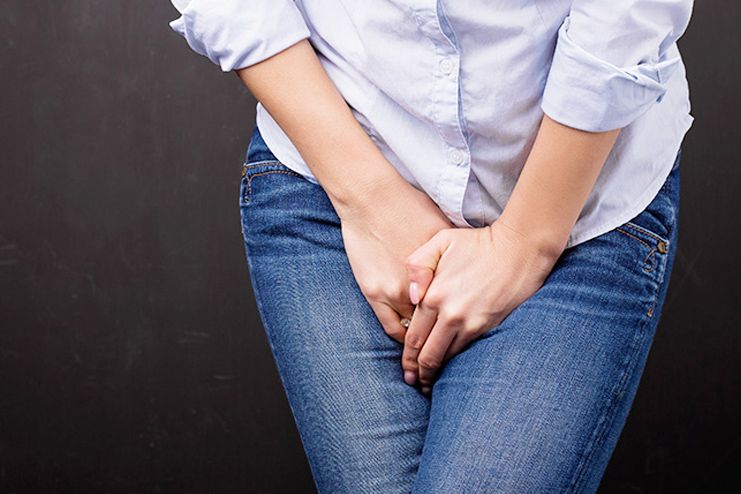
Pelvic floor disorder is associated with difficulty in defecating, where constipation is experienced frequently. Urinating can be very frequent, and there may also be pain while passing urine.
The most common symptom experienced by women with this condition is cramps without a period. The initiation of this disorder is attributed to pregnancy, prostate cancer, being overweight, or after childbirth.
The pelvic floor supports the uterus, bowel, and bladder, so monitoring any changes or disorders related to this area is important. If you’re experiencing persistent abdominal cramps but no period, along with the symptoms mentioned above, it’s best to consult a doctor to avoid potential complications.
Also, Read: Understanding Pelvic Floor Disorders and Pain: Causes, Symptoms, and Treatment Options
11. Interstitial Cystitis
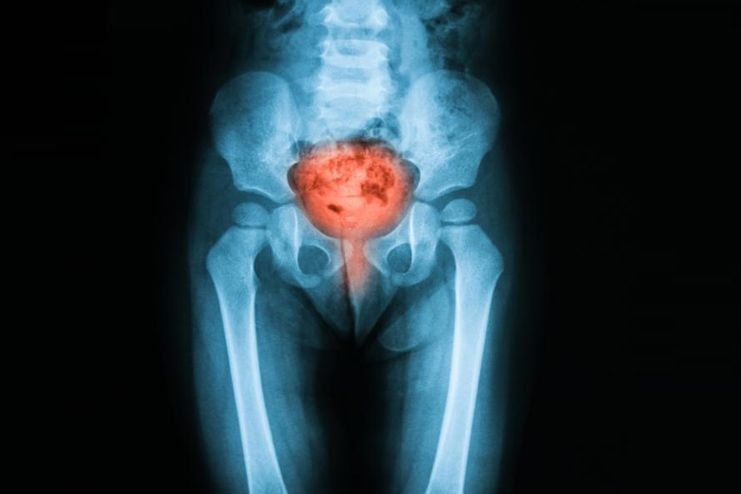
Interstitial cystitis is related to painful bladder function, often referred to as painful bladder syndrome. It is characterized by chronic pain, increased bladder pressure, and abdominal and pelvic discomfort. These cramps are commonly mistaken as experiencing cramping without a period.
This can be problematic because it might cause other complications if not treated. For one, sexual life can be affected, and may include difficulties with urination and bowel movements. There may also be interstitial cramping pain, which can lead to emotional problems, as sleep disturbances often induce it.
12. Appendicitis
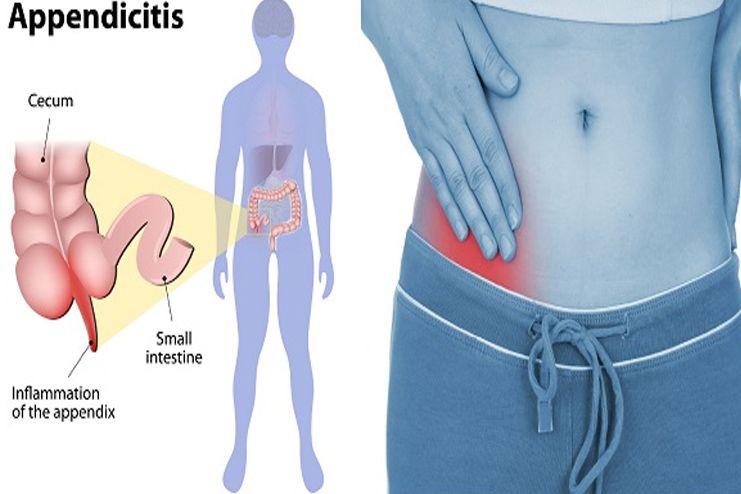
Appendicitis is a condition in which the appendix, a vestigial organ, becomes inflamed and attached to the large intestine. It is usually a sharp pain in the abdomen that persists and can feel like period pain but without the period. Seek immediate medical treatment if this is ongoing.
If you experience severe pain at the navel and upper part of the abdomen that gradually lowers down to the lower abdomen, then it could be appendicitis rather than menstrual cramp. If this condition is left untreated, then the inflamed appendix may burst or perforate and infect nearby organs.
13. Autoimmune Oophoritis
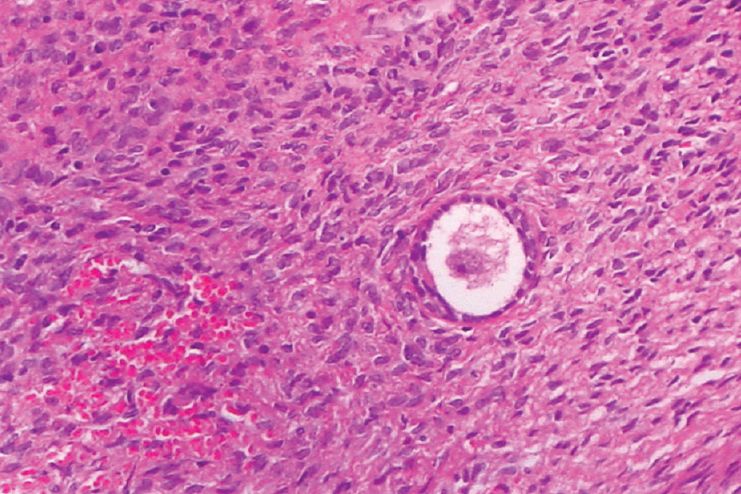
Autoimmune oophoritis is a condition under primary ovarian insufficiency in which the body’s immune system mistakenly identifies the ovaries as foreign and attacks them. This leads to inflammation and scarring around the ovaries.
The condition often causes lesions, fibrosis, and atrophy, which not only restrict the function of the ovaries but also result in severe abdominal pain that can be mistaken for menstrual cramps.
This condition is frequently caused by sexually transmitted diseases. Therefore, to reduce the risks, safe sex should be practiced. Autoimmune oophoritis can cause cramps without a period. However, the condition should not be overlooked, as it might lead to lasting impairments in one’s health.
14. Ovarian Cyst
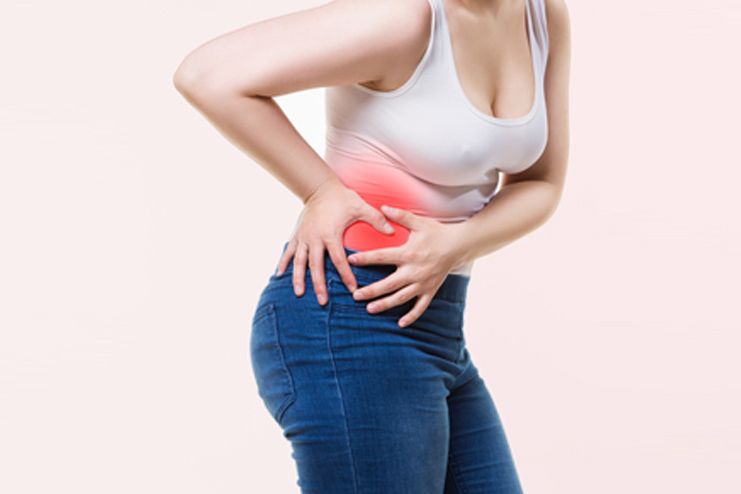
Much like the formation of any other type of cyst in the human body, an ovarian cyst is a fluid-filled sac that forms on or in the ovaries. These cysts resemble a bump at the site they affect.
The majority of ovarian cysts are harmless and can be treated with a few months of observation. However, severe symptoms arise with cysts that have grown uncontrollably in size or have possibly ruptured.
Ruptured cysts tend to cause persistent abdominal cramps without a period, and the pain may worsen over time. It’s essential to consult a healthcare professional to address the issue before the situation escalates. Sharp, shooting pains in the abdomen can have a significant impact on a woman’s reproductive health if left untreated.
Conclusion
Many cramps without a period are simply overlooked, but as we’ve learned, they can be symptoms of a much more serious problem that needs medical attention. Though menstrual cramps are an expected part of many women’s lives, persistent abdominal pain without menstruation can be a symptom of various conditions.
These range from stress and pregnancy to much more serious conditions like ovarian cysts, pelvic inflammatory disease, or even ovarian cancer.
These symptoms must not be dismissed or assumed as temporary as early evaluation and treatment can prevent further complications as well as protect the reproductive health of individuals.
You should not delay consulting a healthcare professional if you have cramps without a period that is severe, lasts more than usual, or is accompanied by other concerning symptoms.
Proper care and timely intervention can prevent long-term damage and better health outcomes. Keep track of your symptoms. Always prioritize keeping yourself healthy.
-
Jun 2018Written by Somapika D
-
Mar 2025Edited by Lakshmi Gayatri
In this Article















